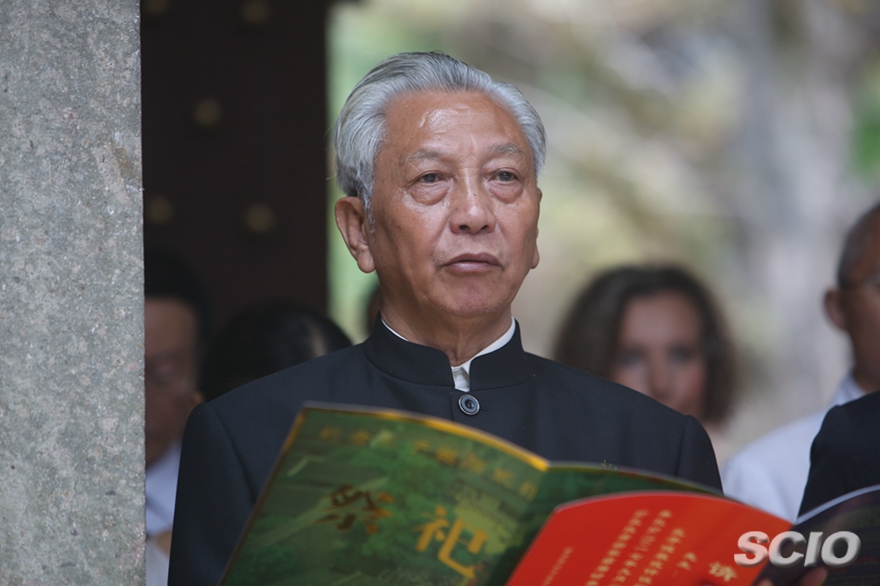Descendant of Confucius restores Confucianism traditions
By He Shan
Kong Xiangkai, director of the management committee of Quzhou Southern Confucius Ancestral Temple and the 75th generation in the lineal descent of Confucius, has been keeping Confucianism relevant today through the annual ceremonies commemorating the birth of the great philosopher and educator.
 |
Kong Xiangkai, the 75th generation in the lineal descent of Confucius, attends the annual ceremony marking the birth of Confucius on Aug. 28, 2017. [Yang Yunpeng/China.org.cn] |
Kong revived the commemorating ceremony to mark the birth of Confucius in 2004 after the tradition lapsed for more than 50 years in Quzhou, a city in China's southeastern Zhejiang Province.
He said the ceremony was revived in order to inform more people about Confucius and Confucianism, which has been influential for more than 2,700 years.
"In the fast-changing society nowadays, people have no time to comprehend and learn his ideas," he said. "Only by such ritual and ceremonial observance can we have a chance to remember him and find value in his teachings."
Kong said he believes the sense of tradition and the ritual ceremonies can help people today to feel Confucianism's role as a crucial component in modern life.
Kong said many Chinese still practice Confucius teachings and virtues without knowing the origin. For instance, an uneducated woman living in rural areas will avoid sitting on a piece of paper with words written on it; Chinese kids are told not to converse while eating and not to speak while in bed. These are all mentioned in "The Analects," a collection of sayings and ideas attributed to Confucius and his disciples.
For Kong, these are important because the respect for others and good manners constitute the most basic Confucius virtues. With the annual ceremonies, Kong hopes more of these virtues will become widespread.
Experiencing the lively activities and the solemn atmosphere of the ceremony firsthand could be a better way to learn about Confucius and his great philosophies than in a classroom, Kong said.
Bel Lassen, the first inspector general in the field of Chinese language teaching at the Ministry of Education of France, has been engaged in Chinese teaching in France for more than three decades and was invited to attend the ceremony held in Quzhou this September.
"When it comes to China, the first person coming to the mind of a Frenchman is Confucius," he said."Confucius has been an icon and his philosophy has constituted the corner stone of China's culture."
Commenting on the ceremony, Matt Hamilton, chairman of the board for the Confucius Institute at the University of Oklahoma who attended the ceremony in Quzhou, said it was a grand gathering and one of the ways to revive and apply Confucianism in modern China.
"His ideas, such as treating everyone with decency and humanity, are anuniversal truth and principles that I wish more people to follow," he said.
Over the past two decades, China has tried to increase the influence of Confucius and his teachings abroad as it actively established Confucius Institutes in foreign countries.
"Confucius is very well felt and perceived in the United States," said Hamilton. "Confucius Institutes in the United States enable young students to have the opportunity to learn about Chinese language and culture."
Official data indicates that China has set up 512 Confucius Institutes by the end of 2016 in collaboration with around 140 countries and regions.
"Many foreigners are learning about Confucius' ideas, making it even more necessary for us Chinese to learn about him," Kong said.